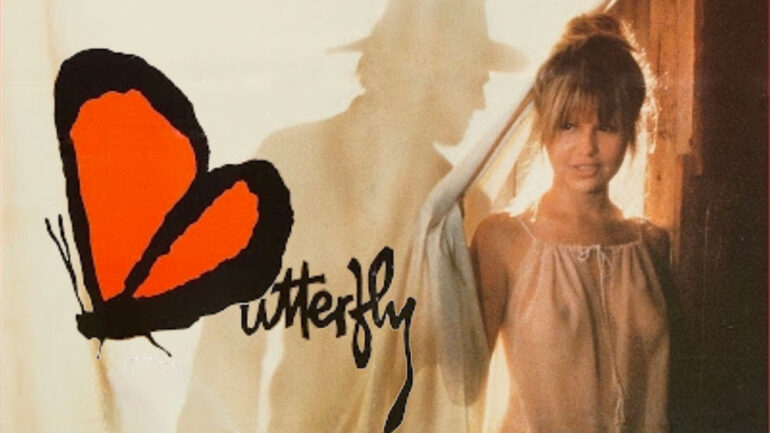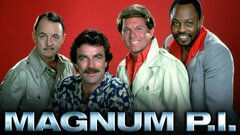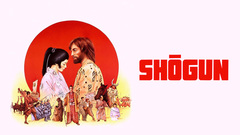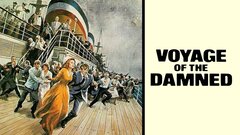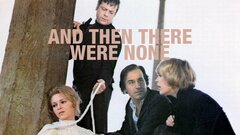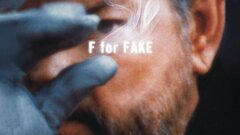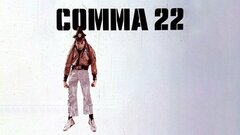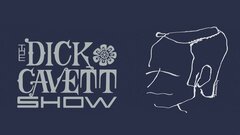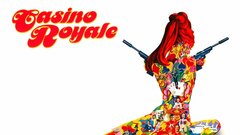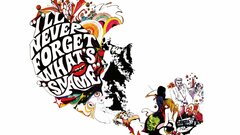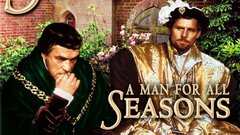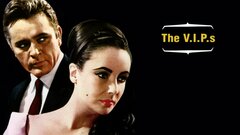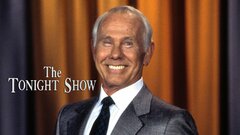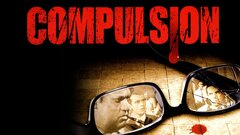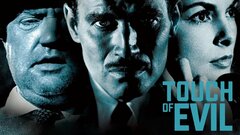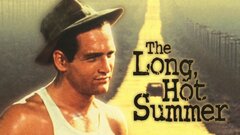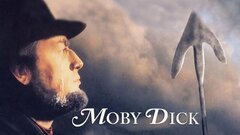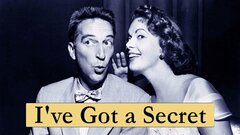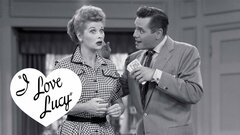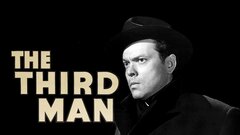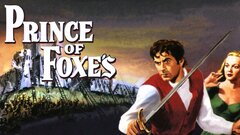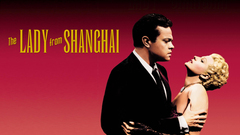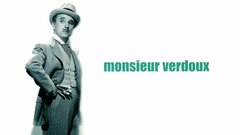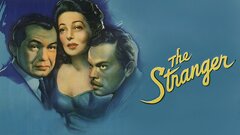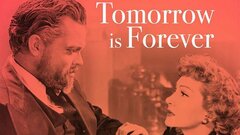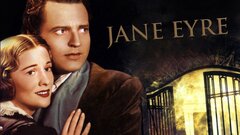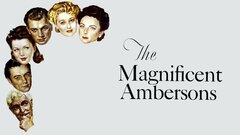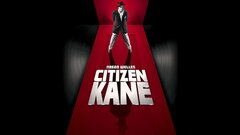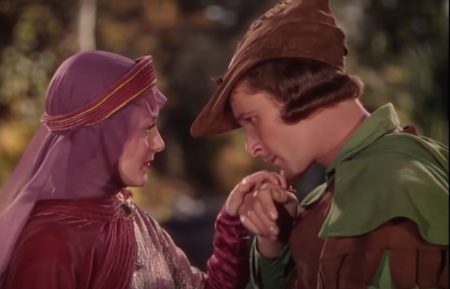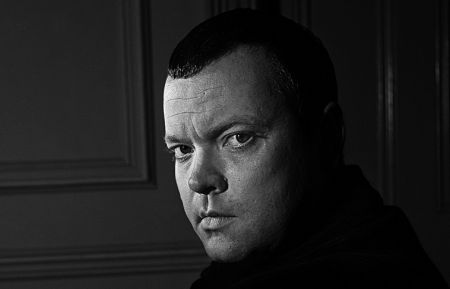An undeniable pioneer in both radio and film, actor-director Orson Welles used his bona fide genius to change the face of both mediums with imagination, ambition, and technical daring. Having started off as a performer on stage, most notably with John Houseman, with whom he formed the famed Mercury Theatre, Welles used his distinctive baritone voice to create innovative radio dramas.
He became famous - notorious, even - following his 1938 broadcast of H.G. Wells' "War of the Worlds," which he presented as a real time news event, sparking panic among listeners who thought Martians really were invading New Jersey. The fame he achieved in the wake of the broadcast attracted RKO Pictures, where he made the most stunning directorial debut in the history of cinema with "Citizen Kane" (1941), long considered to be the greatest film ever made.
Using innovative narrative and technological techniques, Welles singlehandedly changed the face of cinema, earning the nickname the Boy Wonder. He went on to direct "The Magnificent Ambersons" (1942), though both films were financial failures that prompted his exit from RKO.
After marrying Love Goddess Rita Hayworth and directing "The Stranger" (1946) and "Macbeth" (1948), Welles began a 10-year self-imposed Hollywood exile that saw him appear onscreen in movies like "The Third Man" (1949) while directing well-received films overseas like "Othello" (1952) and "Mr. Arkadin" (1955).
He returned to Hollywood to helm "Touch of Evil" (1958), a classic film noir, while suffering a commercial drubbing with his adaptation of Franz Kafka's "The Trial" (1962).
His take on Shakespeare's famed character, Falstaff, in "Chimes at Midnight" (1966) again earned international acclaim despite being largely ignored in the United States.
Though he fell on hard times in the 1970s, Welles nonetheless remained busy with numerous projects in various stages of completion while appearing onscreen in a number of performances and using his distinctive voice in a variety of narrator roles.
When he died in 1985, Welles left behind a legacy as a consummate artist and true auteur whose influence was profoundly felt by several generations of filmmakers.
Born on May 6, 1915 in Kenosha, WI, Welles was initially raised by his father, Richard, an inventor and businessman who made a fortune by inventing a popular carbide lamp for bicycles, only to descend into alcoholism after selling his business once an electrical one came to market.
Meanwhile, his mother, Beatrice, was a concert pianist who utilized her talents to support the family after separating from his father in 1919.
Just a few days after his ninth birthday, Welles' mother died from jaundice, which left him in the care of one Dudley Watson until he was 15.
Following his father's death, he came under the official guardianship of Maurice Bernstein, a doctor who recognized the young boy's artistic gifts well before either parent had passed.
He attended the independent Todd School in Woodstock, IL, which provided Welles with an environment to nurture and develop his artistic skills by allowing him to set his own curriculum.
It was at Todd that Welles first began taking a serious interest in theater, where the young man both performed and staged his own productions.
After leaving Todd, Welles traveled to Europe on his small inheritance and found himself in Dublin, Ireland, where he boldly strode into the experimental Gate Theatre and declared himself a Broadway star.
Impressed by the young man's brazenness, the theatre manager allowed him to appear in a production of "Jew Suss," in which Welles acted to great acclaim.
At 19, he made his Broadway debut as Tybalt in "Romeo and Juliet," while that same year he made his debut as a director and onscreen actor in the short film "The Hearts of Age" (1934).
Meanwhile, his performance in "Romeo and Juliet" attracted the attention of famed director John Houseman, who later tapped him to perform in the Federal Theatre Project.
By this time, Welles was performing in a number of radio shows and married sometime actress Virginia Nicholson.
In 1936, he directed an all-black cast in a Haitian-themed version of "Macbeth," which became known as "Voodoo Macbeth" because of its use of voodoo instead of witchcraft. Highly regarded by critics and audiences, the production went on to tour the United States, with Welles even filling in the title role in blackface after his lead actor fell ill.
Hailed a prodigy at just 21, Welles formed his own repertory company with Houseman called the Mercury Theatre, which culled actors from the various radio shows he work on at the time.
In 1937, Welles reworked Shakespeare's Julius Caesar into a contemporary take on Fascist Italy, a roaring success that prompted critics to hail him as one of the great stage talents of the day.
Turning more to radio as his chosen medium, Welles adapted and starred in a production of "Hamlet" for CBS on the "Columbia Workshop."
He next voiced "The Shadow" before receiving his own weekly radio program, "The Mercury Theatre on the Air" (CBS, 1938-40; 1946), which set the stage for one of his most famous performances.
On Oct. 30, 1938, Welles adapted the H.G. Wells novel, War of the Worlds, for his radio broadcast. Though the broadcast clearly started as an adaptation of the novel, with Welles himself reading an introduction, many listeners tuning in late heard breathless news reports of an alien invasion from Mars that had landed at Grover's Mill, NJ.
The concocted news reports and eyewitness accounts were so authentic, that many panicked and thought that an actual invasion was underway - no doubt fueled by growing unease caused by the looming war in Europe.
Though CBS had a considerably smaller audience than its competitor, NBC, "War of the Worlds" reached a sizable population and sparked outrage by those who believed the reports they heard.
Numerous newspaper articles were published detailing the extent of the panic caused by the broadcast, though later analysts determined that many exaggerated the extent of the frenzied reaction, particularly reports of mobs being controlled by police.
Still, Welles was propelled into instant stardom that bordered on notoriety. Seeking to capitalize on his newfound fame, RKO brought him to Hollywood to write, direct, produce and act in two films for $225,000 plus enjoy total creative freedom and a percentage of the profits. It was the most generous offer a Hollywood studio had ever made to an untested filmmaker.
After several aborted projects, including an adaptation of Joseph Conrad's Heart of Darkness, the 26-year-old Welles made what was and continues to be described as the most stunning debut in the history of film with "Citizen Kane" (1941).
Initially called "American," Welles' first film was a bold, brash and inspired tour-de-force that told its story from several different perspectives, recounting the rise of an idealistic newspaper man, Charles Foster Kane (Welles) - distinctly modeled after real-life publishing magnate William Randolph Hearst - who accumulates enormous wealth and power, which corrupts his soul and ultimately disconnects him from his own humanity.
Meanwhile, an intrepid magazine reporter (William Alland) is tasked with interviewing Kane's few close associates in an effort to discern the meaning of his cryptic last word, "Rosebud," uttered just before dying.
With the brashness of a Hollywood newcomer, Welles pushed existing filmmaking techniques as far as they would go, creating a new and distinctive film aesthetic that influenced generations of filmmakers to come.
Among the innovative elements of Welles' style exhibited in "Citizen Kane" were the use of deep focus cinematography, which kept in sharp clarity all objects on the screen no matter how far they were in the background.
He also used complex "mise-en-scene," in which the frame overflowed with action and detail; low-angle shots that revealed ceilings and made characters - especially Kane - seem simultaneously dominant and trapped, while also giving the impression that the audience was watching a play; long takes interspersed with flashing newsreel footage; a fractured narrative that featured flashbacks and numerous points-of-view; a fluid, moving camera that expanded the action beyond the frame and increased the importance of offscreen space; and the creative use of sound as a transition device.
Written with Herman Mankiewicz, with whom he shared an Academy Award for Best Original Screenplay, Welles infused a number of genres - historical epic, Shakespearean tragedy, gothic romance, film noir and melodrama - seamlessly into one film.
Although well received by critics, "Citizen Kane" faced distribution and exhibition problems exacerbated by Hearst's powerful and negative campaign to suppress it - he banned any mention of the movie in his many newspapers and magazines - and it fared poorly at the box office.
Only when the French New Wave took a renewed appreciation following the war did the film find new life.
Decades later, "Citizen Kane" stood atop most lists as being the greatest movie ever made.
Welles went on to direct his second film for RKO, an adaptation of Booth Tarkington's "The Magnificent Ambersons" (1942), a more conventional, less flamboyant film that utilized many of the same techniques developed for "Kane" to evoke a richly textured recollection of turn-of-the-century America.
Starring Joseph Cotten, Anne Baxter and Agnes Moorehead, the film focused on a wealthy small-town family that finds its fortunes fading after the onset of technological progress.
At the time he was making "Ambersons," Welles began simultaneous work as both an actor and director on "Journey into Fear" (1943), but was forced to abandon his behind-the-camera work due to other commitments.
Further complicating his efforts were his travels to Brazil to shoot the documentary "It's All True" as part of the U.S. government's Good Neighbor policy during World War II.
Welles rushed to edit "Ambersons" before flying off to South America, leading RKO to eventually take control of the picture.
Though he gave detailed notes on how to re-edit the film, Welles was largely ignored by the studio, which deleted 43 minutes from his film.
Even in its truncated form, "Ambersons" remained a dark, compelling look at the nature of wealth, class and progress in America that unfortunately proved a commercial failure - a blow from which Welles' reputation would never recover despite generations of critics calling the film one of his best.
Because of the financial failure of "The Magnificent Ambersons," Welles and his Mercury Players were dismissed from RKO, which subsequently refused to continue its support for "It's All True."
That film remained unreleased until footage was found and cobbled together decades later.
Meanwhile, Welles became a director no studio wanted to work with, which led to a brief return to radio that failed to pan out.
In 1943, many were left scratching their heads when the decidedly less-than-photogenic Welles married the world's most desired woman, sex symbol Rita Hayworth, after she abruptly ended her engagement to Hollywood hunk Victor Mature.
The new coupling seemed to work, with Hayworth clearly adoring of her genius husband. The newly-coined "Love Goddess" even performed in Welles' staged magic shows.
In 1944, the relationship seemingly solidified when she gave birth to their daughter, Rebecca Welles.
Professionally, he augmented his career by turning more to acting, playing Edward Rochester opposite Joan Fontaine as the titular "Jane Eyre" (1944).
He returned to the director's chair for "The Stranger" (1946), a film noir from independent producer Sam Spiegel, which starred Welles as a Nazi war criminal hiding out in a small town as a college professor, only to find his cover blown by an unassuming antiques dealer (Edward G. Robison).
Though well received by critics and his only box office success upon release, "The Stranger" was devoid of his characteristic touch and was regarded as his most traditional Hollywood fare.
He reinvigorated his filmmaking flair with "The Lady from Shanghai" (1948), a stunning film noir in which Welles starred opposite his now estranged wife.
His rumored infidelities over the years with such lovers as Marlene Dietrich had caused fissures in the relationship, which only exacerbated Hayworth's already crippling insecurities.
A confident man, Welles simply could not understand nor comfort Hayworth - let alone face his part in adding to her insecurities in the first place.
The couple had already separated before the collaboration began, with the actress filing for divorce once filming was completed.
The couple divorced in 1947.
As for the picture itself, the disjointed film noir divided critics at the time and ignited the ire of producer and Columbia Pictures head Harry Cohn, who hated the movie mainly because Welles had the audacity to chop off and bleach his biggest star's most famous asset: Hayworth's flowing red hair.
The film's standing improved over time, with its famed hall-of-mirrors finale marking a superb example of Welles' gift for audacious visual images.
Welles moved on to direct an informal and impressive Shakespeare trilogy, which was started by an eccentric, atmospheric version of "Macbeth" (1948), in which he played the title role and encouraged his actors to speak with thick Scottish burrs.
Its centerpiece - a sequence that began with Macbeth's decision to kill the king, followed by the murder and ending with the discovery of the crime by Macduff (Dan O'Herlihy) - was captured in a single 10-minute take.
The film, however, proved unsuccessful and was dismissed at the Venice Film Festival.
After the film's failure, Welles began a self-imposed, 10-year exile from Hollywood.
Four years later, he tried to answer critics with a striking version of "Othello" (1952), which won the Palm d'Or at the Cannes Film Festival, though again his film was largely ignored in the United States.
In between those films, Welles appeared onscreen in a number of movies, most notably "The Third Man" (1949), a Cold War film noir in which he played the enigmatic Harry Lime, who fakes his death to hide criminal activities which are uncovered by his unsuspecting, longtime friend (Joseph Cotten).
Hailed as a masterpiece in film noir, "The Third Man" offered one of Welles most remembered performances outside of his own work.
Meanwhile, Welles followed up "Othello" with "Mr. Arkadin " (1955), an acerbic profile of a powerful man (Welles) that showed signs of the brilliance that marked "Citizen Kane," but was hindered by an episodic narrative and spotty acting.
Welles returned to Hollywood to direct and act in "Touch of Evil" (1958), a film noir masterpiece that starred Charlton Heston as a Mexican police officer getting framed for a border murder by his American counterpart (Welles).
From its stunning long-take opening of a car bombing to its tragic denouement, "Touch of Evil" reiterated the director's overarching vision of the world as an exacting moral network where each human act has endless and unforeseen moral consequences.
One of the last made in the classic film noir period, the film stood the test of time as one of the genre's very best.
After a supporting role in John Huston's adventure drama "The Roots of Heaven" (1958) and a leading performance in "Compulsion" (1959), which was based on the famed Leopold and Loeb murder, Welles adapted Franz Kafka's novel, "The Trial" (1962), a nightmarish extension of the author's vision of a society completely devoid of a moral sense.
But once again, his film floundered upon release, only this time critics remained polarized on its merits even decades later when his most dismissed work was seen in more sympathetic light.
Meanwhile, he directed the final film in his unofficial Shakespeare trilogy, "Chimes at Midnight/Falstaff" (1966), which Welles - who by this time was of proper girth to play Falstaff - fashioned together from five of Shakespeare's historical plays: Henry IV, Part 1, Henry IV, Part 2, The Merry Wives of Windsor, Henry V and Richard II.
Hailed internationally and even held in the highest regard by the filmmaker himself, "The Trial" ranked among Welles' finest achievements.
While he continued to appear onscreen in a variety of roles - playing Cardinal Wolsey in "A Man for All Seasons" (1966), criminal mastermind Le Chiffre in the farcical "Casino Royale" (1967), and the blind prophet Tiresias in "Oedipus the King" (1968) - Welles struggled to make his own films, leaving a trail of projects in various unfinished stages behind.
He turned to French television for his next directing effort, "The Immortal Story" (1968) a satisfying minor work that was an adaptation of an Isak Dinesen story.
His final completed film, "F for Fake" (1973), was a diverting collage of documentary and staged footage that investigated the line separating reality and illusion.
Originally blasted by critics for being self-indulgent, "Fake" gained prominence over time as one of his most celebrated works, thanks in part to a key endorsement from filmmaker Peter Bogdanovich.
In fact, Welles - who was once interviewed by Bogdanovich for the American Film Institute - took the young director of "The Last Picture Show" (1971) under his wing and served as his mentor.
In return, Bogdanovich let Welles stay in his mansion when the older director was down on hard times.
While struggling with numerous health ailments brought on by his obesity - at times he topped 400 pounds - Welles continued and often aborted film projects, though he did manage to finish "Filming Othello" (1979), a documentary he made about making his 1952 film.
Turning to television commercials in the late 1970s, Welles famously served as the spokesman for Paul Masson wine, whose catchphrase "We will sell no wine before its time" captured the public's imagination in a variety of TV and print ads.
Following a supporting turn as J.P. Morgan in the biopic "The Secret of Nikola Tesla" (1979), he narrated the Nostradamus documentary "The Man Who Saw Tomorrow" (1981) before briefly serving as the voice of the unseen Robin Masters on Tom Selleck's hit series "Magnum, P.I." (CBS, 1980-88) and appearing as himself in a special film noir-inspired episode of the offbeat series, "Moonlighting" (ABC, 1985-98).
On Oct. 10, 1985, Welles appeared on "The Merv Griffin Show" (NBC/CBS/syndicated, 1962-1986) to conduct what turned out to be































